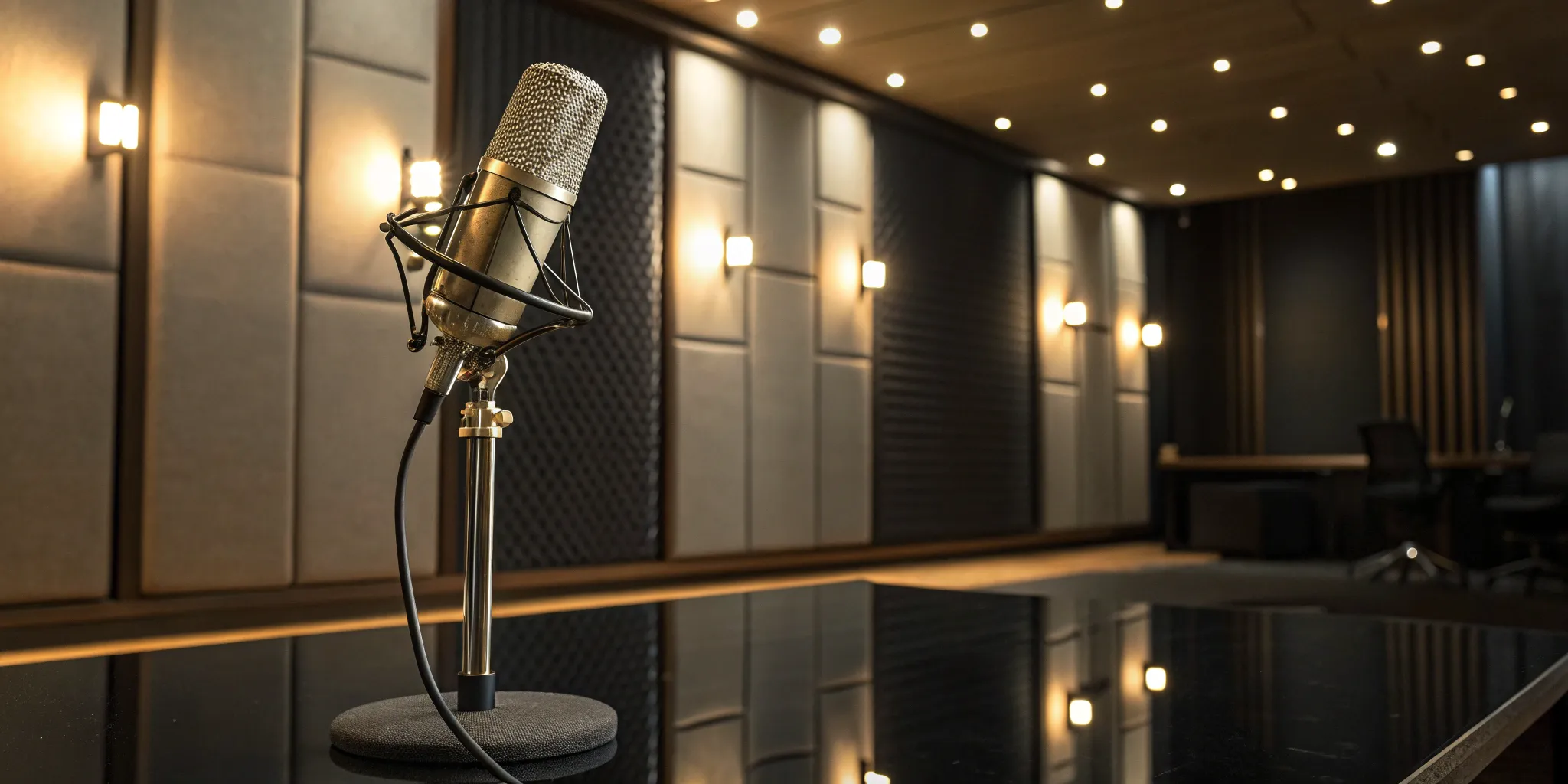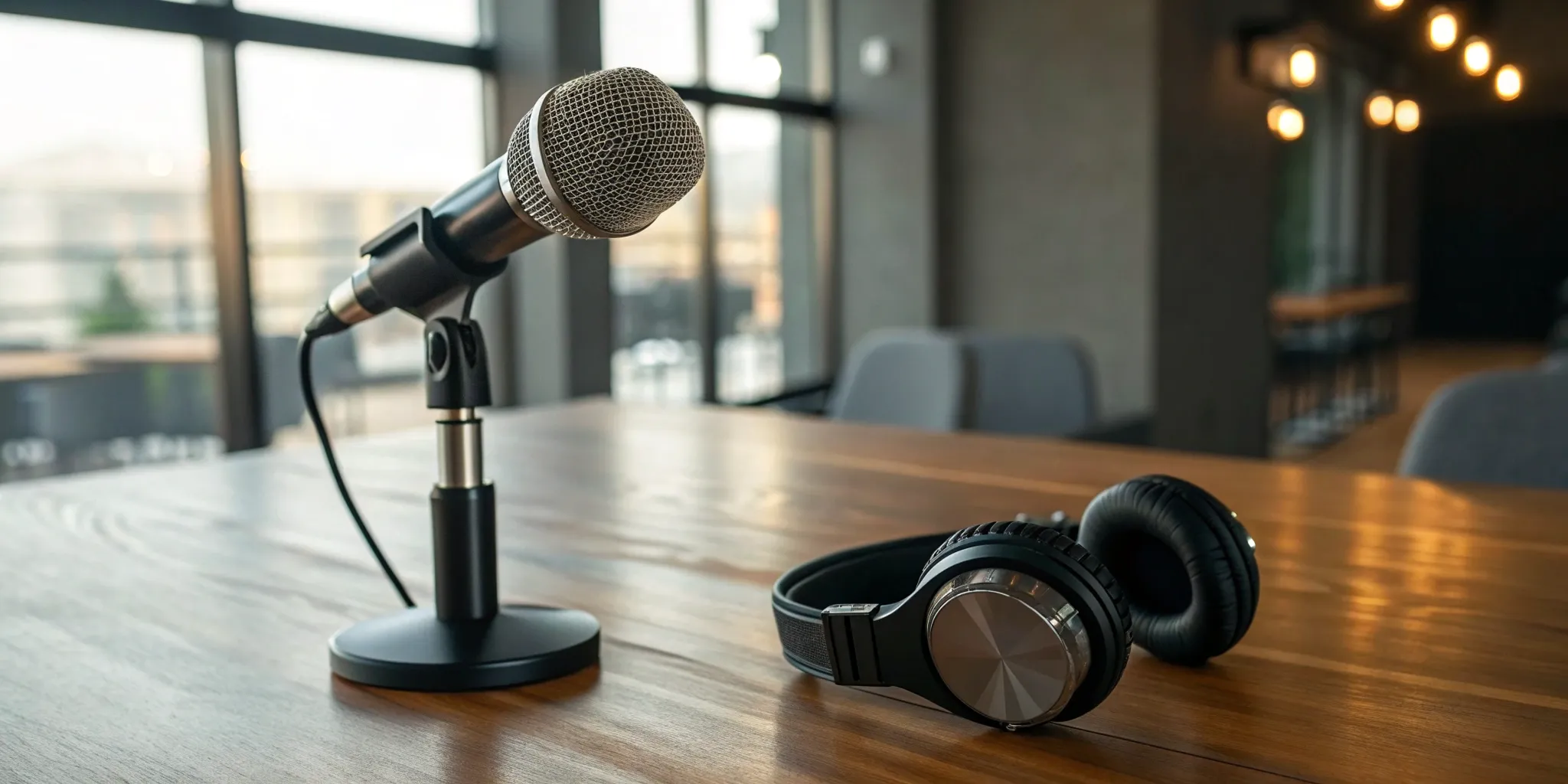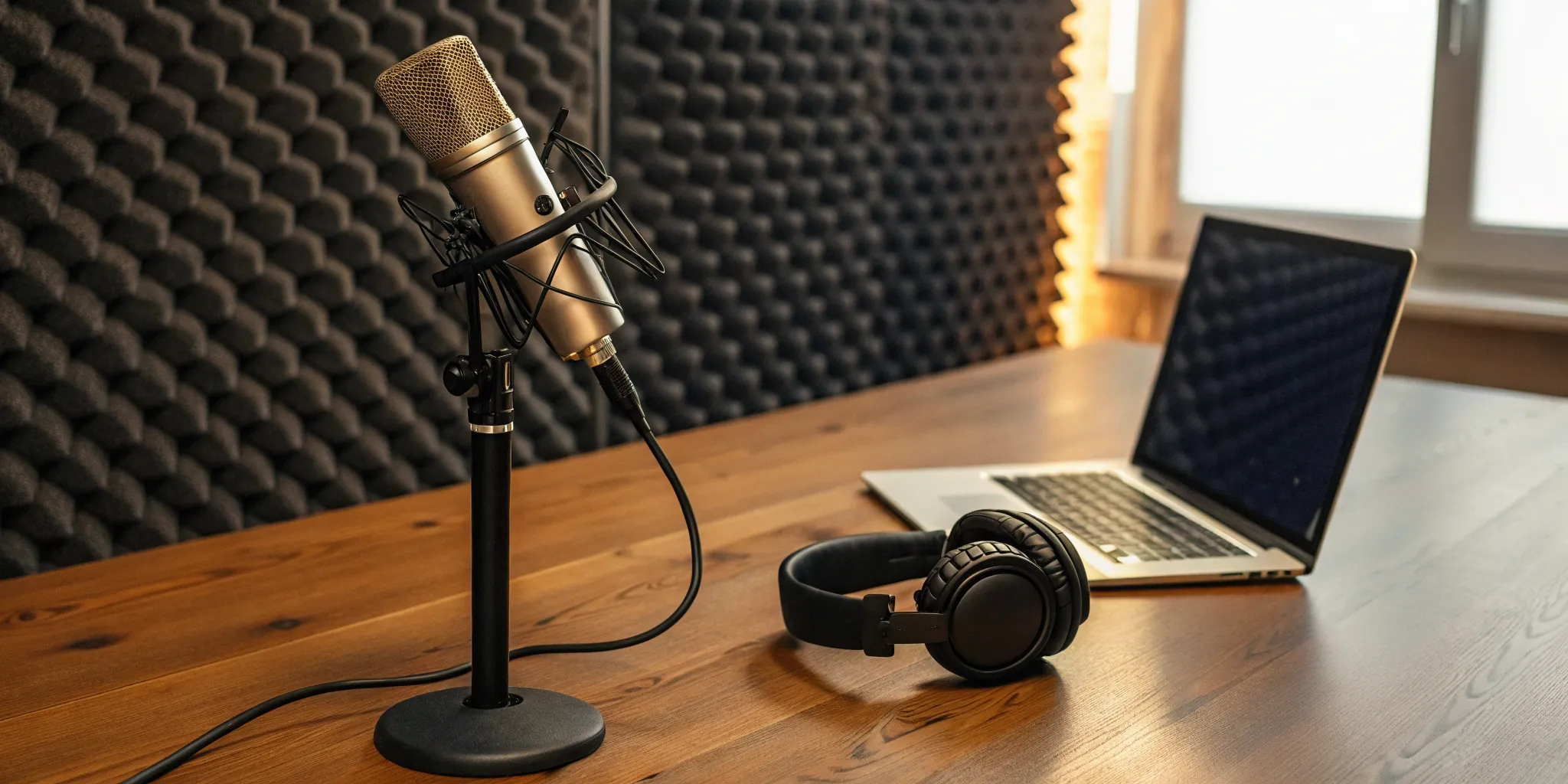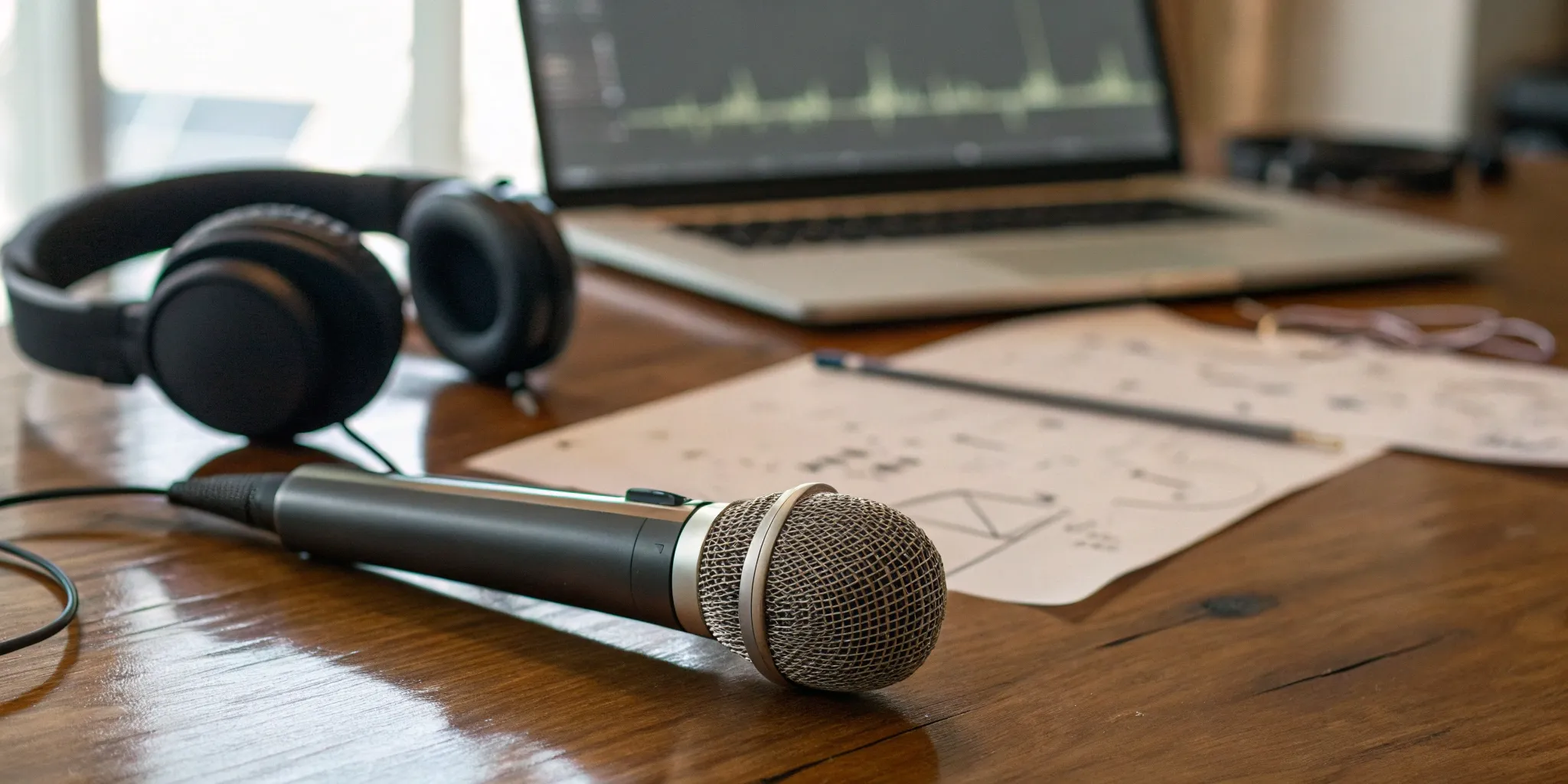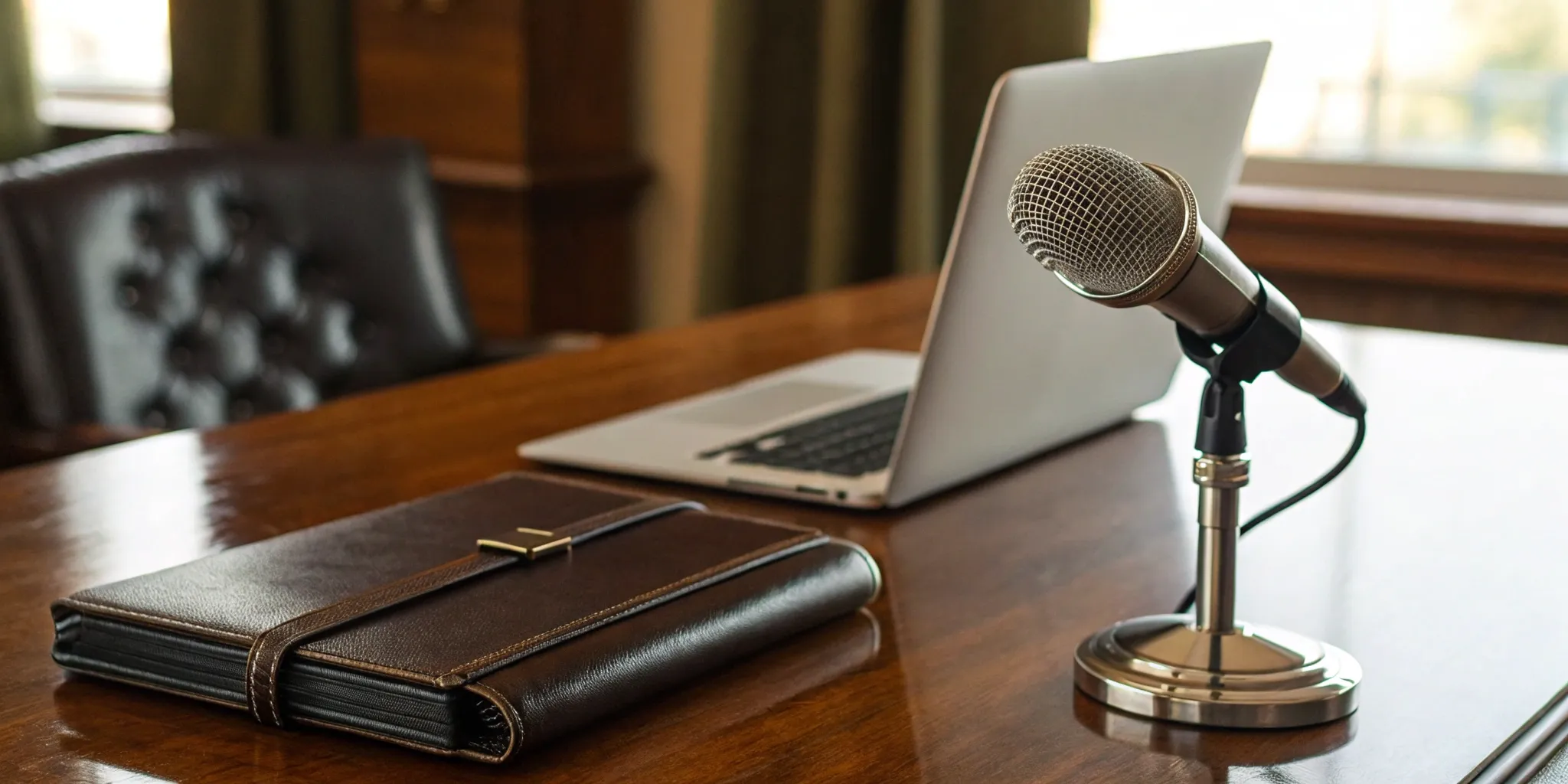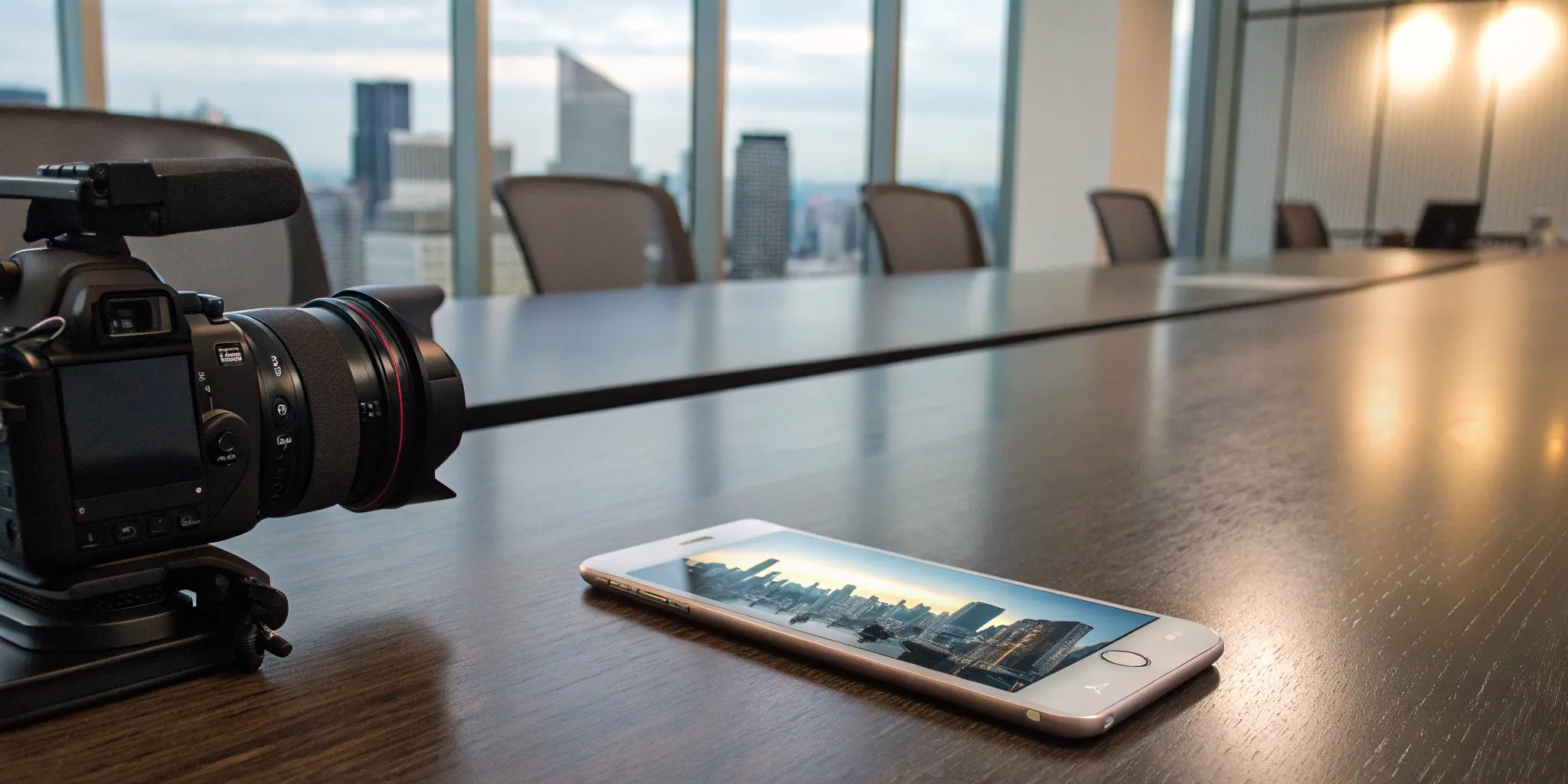You’ve written the book, built the company, and established yourself as an expert in your field. Now, it’s time to share that expertise with the world. Media appearances are a powerful tool for building credibility, but breaking into the circuit can feel like a full-time job. Fortunately, platforms that generate a daily radio guest list have simplified the process, creating a direct line between thought leaders and show producers. This article is your complete playbook for not just finding these opportunities, but mastering them. We’ll cover everything from polishing your professional profile and securing interviews to delivering a flawless on-air performance that makes hosts want to invite you back again and again.
Key Takeaways
- Master your first impression: Your guest profile and media kit are your digital handshake. A polished, professional presentation with clear talking points makes you an easy “yes” for busy hosts and producers before they even speak to you.
- Pitch with purpose, not just volume: A personalized pitch that shows you understand the show’s audience is far more effective than a generic template. Treat every interaction, from the initial email to the post-interview thank you, as an opportunity to build a lasting professional relationship.
- Control the controllables on interview day: Your expertise means nothing if it’s lost to bad audio or a shaky connection. A professional tech setup, a quiet space, and clear talking points ensure your message is delivered with the clarity and authority it deserves.
What is RadioGuestList?
Getting featured on podcasts and radio shows is a fantastic way to build authority, but finding the right opportunities can be a challenge. That’s where a service like RadioGuestList.com comes in. It’s a matchmaking service connecting experts, authors, and thought leaders with hosts who are actively looking for guests. This straightforward tool helps you land free interviews on podcasts, radio, and even TV programs. By using this resource, you can spend less time searching for opportunities and more time preparing to share your insights with a new audience.
How Does the Platform Work?
The process is refreshingly simple. You sign up for their free email service and receive daily “Guest Request” emails. These emails detail what a specific show host is looking for, including their desired topics. If a request aligns with your expertise, you email the show’s contact person directly to pitch yourself as a guest. This direct approach allows you to communicate your value straight to the decision-makers. For hosts, the service is also free; they submit their guest needs, and RadioGuestList shares those requests with its network of experts.
Free vs. Premium: What’s the Difference?
While the free service is a great starting point, RadioGuestList offers a premium option for a competitive edge. The biggest advantage is speed. Premium subscribers receive interview opportunities a full eight hours before free subscribers. In media booking, that head start can mean the difference between landing a spot on a top-tier podcast or missing out. This allows you to pitch yourself to the best shows first, before they get flooded with submissions. The premium service gives you a first look at the most promising opportunities, a major benefit when your time is valuable.
Benefits for Guests and Hosts
The core benefit of RadioGuestList is efficiency. It creates a direct line between hosts who need quality content and experts who need a platform. For guests, this means a steady stream of potential interview opportunities delivered to your inbox, offering a simple way to gain free publicity and expand your reach. For hosts, it’s a reliable source for finding credible interviewees without extensive outreach. The platform simplifies the discovery process for both sides, making it easier for compelling stories and valuable expertise to find an audience.
Create a Standout Guest Profile
Your guest profile is your digital handshake. Before a host ever hears your voice, they’ll read your bio, scan your headshot, and decide if you’re the right fit for their audience. A generic profile that just lists your job title won’t cut it. You need to create a compelling snapshot that immediately communicates your value and makes a producer think, “I have to book them.”
Think of your profile as the cover of your book—it needs to be intriguing enough to make someone want to open it. This is your chance to control the narrative and present yourself as the go-to expert in your field. A standout profile includes a professional picture, a punchy headline, a well-written bio, and links to your work. It’s not just a summary of your resume; it’s a strategic tool designed to get you noticed. It tells hosts not only what you know, but who you are and why their audience will connect with you. Getting this right means the difference between being one of a hundred applicants and being the one they can’t wait to interview. At Leverage with Media, we help our clients craft profiles that don’t just get seen, they get results.
Write an Engaging Bio
Your bio is more than a list of accomplishments; it’s your story. Start with a powerful opening sentence that grabs attention and clearly states who you are and what you do. Instead of using jargon, write in a conversational tone that reflects your personality. Tell the reader what problems you solve and who you solve them for. A good bio should feel authentic and connect with the host on a human level. End with a clear call to action, directing them to your website or social media to learn more. Remember to keep it concise—a few strong paragraphs are more effective than a full page.
Showcase Your Expertise
To make booking you a no-brainer, you need to go beyond a simple bio. Craft a compelling narrative that showcases your expertise with specific examples and talking points. What unique perspective can you offer? List three to five specific topics you can discuss with authority, and even suggest a few potential interview questions. This does the heavy lifting for the host, showing them exactly how you can provide value to their listeners. Highlighting your credentials and past successes helps build credibility and positions you as a sought-after guest. You can see how we highlight our clients’ expertise to land them top-tier features.
Build a Professional Media Kit
A professional media kit, or press kit, is your secret weapon for looking polished and prepared. Having a media kit ready helps you present your credentials and past appearances effectively, making it easier for hosts to see your value. This single document should include your professional bio, high-resolution headshots, a list of speaking topics, links to previous interviews, and your contact information. It saves producers time and shows that you take media appearances seriously. Offering a downloadable media kit on your website or profile makes you an easy “yes” for busy hosts looking for credible, organized guests.
Optimize Your Profile for Maximum Impact
Once you’ve built your profile, the work isn’t over. Keep it fresh by regularly updating it with your latest appearances, publications, and achievements. Ensure all links to your website and social media are current and working correctly. A stale profile can signal that you’re not actively seeking opportunities. When you reach out to hosts, keep your pitches relevant, short, and friendly. A personalized message that shows you’ve actually listened to their show will always outperform a generic template. If you need help fine-tuning your profile and pitch, you can always book a call with our team.
Find and Secure Interview Opportunities
Once your profile is polished and ready to go, it’s time to start the outreach process. This is where you shift from passively waiting for hosts to find you to actively seeking out the perfect stages for your message. Securing the right interviews requires a strategic approach that combines smart research with timely action. It’s not about blasting your pitch to every show you find; it’s about identifying the opportunities where your expertise will truly shine and resonate with a new audience. By being methodical and professional, you can build a steady stream of high-quality media appearances that establish you as a go-to expert in your field.
Know the Show’s Requirements
Before you even think about sending a pitch, your first step is to do your homework. Every podcast and radio show has its own unique format, tone, and audience. Taking the time to understand these nuances is critical. Listen to a few recent episodes to get a feel for the host’s interview style, the types of questions they ask, and the topics they cover. Does the show feature in-depth, long-form conversations or quick, rapid-fire segments? Is the tone serious and academic or lighthearted and conversational? Understanding the show’s expectations helps you tailor your message and prove to the host that you’d be a valuable and seamless addition to their programming.
Use Advanced Search to Find the Right Fit
Platforms like RadioGuestList.com are packed with opportunities, but quantity doesn’t always mean quality for your specific brand. This is where advanced search features become your best friend. Instead of scrolling endlessly, you can filter opportunities by specific keywords, categories, and audience demographics that align with your expertise. For example, a non-fiction author can search for shows specifically focused on “book interviews,” “business leadership,” or “personal development.” This targeted approach helps you build a high-quality list of prospects, increasing the likelihood that your pitch will land with a host who is genuinely looking for a guest just like you. It shows you’ve done your research and respect their time and their audience.
Set Up Targeted Notifications
To make your search even more efficient, let the opportunities come directly to you. Most guest booking platforms allow you to set up targeted notifications for keywords and categories relevant to your brand. By creating alerts for terms like “CEO,” “founder stories,” or your specific industry niche, you’ll receive an email as soon as a host or producer posts a “Guest Wanted” notice that matches your profile. This proactive strategy gives you a significant advantage, allowing you to be among the first to respond to relevant callouts. In the fast-paced world of media booking, timing is everything, and these alerts ensure you never miss a perfect opportunity to share your story.
Follow Up Like a Pro
When you receive an interview request or a positive response to your pitch, your communication needs to be prompt and professional. Hosts and bookers are often managing multiple conversations and tight production schedules, so a quick reply can make all the difference. Acknowledge their message, confirm your interest, and provide any requested information—like your media kit or potential talking points—in a clear and organized manner. This responsiveness not only helps you secure the interview but also establishes you as a reliable and easy-to-work-with guest, setting a positive tone for the entire collaboration.
Craft a Pitch They Can’t Ignore
Once your guest profile is polished and ready to go, the next step is reaching out. A powerful pitch is what bridges the gap between having a great profile and actually landing an interview. Think of it as your professional handshake—it needs to be confident, concise, and compelling. Too many experts with incredible stories get ignored simply because their pitch doesn’t connect with the host or producer on the other end.
The key is to shift your focus from what you want to what their audience needs. A successful pitch isn’t a sales letter for your brand; it’s a proposal for a valuable conversation. It shows you’ve done your homework, you respect their platform, and you’re prepared to deliver an interview that will leave their listeners inspired and informed. Let’s break down how to build a pitch that gets you booked.
The Anatomy of a Strong Pitch
A winning pitch makes it incredibly easy for a host to say “yes.” It should be clear, direct, and provide everything they need in one place. Start with a subject line that is both professional and intriguing, like “Guest Pitch: [Your Topic] for [Show Name].” In the body of the email, briefly introduce yourself and immediately state the value you can bring to their specific audience. Instead of just listing your credentials, propose two or three timely and relevant topic ideas that align with their show’s content. Finally, include a direct link to your guest profile or media kit, which should feature your professional headshot, a well-written bio, and links to past appearances. This complete package shows you’re a serious professional who is ready to go.
Personalize Your Outreach
Nothing gets a pitch deleted faster than a generic, copy-and-paste template. Hosts and producers receive dozens of these every day, and they can spot them instantly. To stand out, you need to show that you’re a genuine fan of their work. Before you even think about writing your pitch, listen to at least two or three recent episodes of the show. In your email, mention something specific you enjoyed or a point a previous guest made that resonated with you. Then, connect that observation to why you would be a great fit. Keep your message relevant and friendly. This simple act of personalization demonstrates genuine interest and respect for their platform, immediately setting you apart from the crowd.
Time Your Pitch Perfectly
Timing is everything in media. A brilliant pitch sent at the wrong time is still a missed opportunity. Pay attention to the show’s content calendar and production cycle. Are they running a specific series or theme that aligns with your expertise? Is there a current event or trending topic you can speak on with authority? Pitching a topic that’s relevant right now dramatically increases your chances of getting booked. Also, be mindful of their schedule. Radio shows, in particular, run on a tight clock. Understanding the dynamics of broadcast media shows that you’re a professional who will be easy to work with. Keep your pitch concise and respectful of their time.
Common Pitching Mistakes to Avoid
Even the most seasoned experts can make simple mistakes that get their pitches overlooked. One of the biggest is making the pitch all about you. Remember, your goal is to serve their audience, not just promote your book or business. Another common error is a clear lack of research—pitching a topic that’s a mismatch for the show’s theme or suggesting something they covered last week. This signals to the host that you haven’t done your homework. Other pitfalls include sending long, rambling emails, having no clear topic suggestions, or failing to demonstrate your credibility. Avoiding these mistakes is crucial for building a reputation as a reliable and professional guest that hosts will be excited to feature.
Get Your Tech Ready for a Flawless Interview
You’ve landed the interview—congratulations! Now it’s time to ensure your message is delivered with the clarity and professionalism it deserves. Technical glitches and poor audio quality can distract from your expertise and undermine your credibility before you’ve even shared your best insights. A flawless interview experience isn’t just about what you say; it’s about how you present yourself and your brand.
Think of your tech setup as the stage for your performance. A shaky camera, muffled audio, or a distracting background can pull the audience’s attention away from your story. By taking a few simple steps to prepare your equipment and environment, you show respect for the host, their listeners, and your own message. This preparation allows your personality and knowledge to take center stage, creating a memorable appearance that hosts will appreciate and audiences will love. Let’s walk through exactly what you need to do to get your setup interview-ready.
Your Essential Equipment Checklist
Before you go live, run through a quick equipment check to prevent any last-minute surprises. First, secure a stable internet connection; a wired ethernet connection is always more reliable than Wi-Fi if you have the option. Next, invest in a quality external microphone and a good pair of headphones. Headphones are crucial because they prevent audio feedback from your speakers. For video interviews, use a high-definition webcam—the one built into your laptop is often not enough. Finally, consider your lighting. Position a light source, like a ring light or even a lamp, in front of you to illuminate your face and create a professional look.
Meet Pro-Level Audio Standards
Nothing makes a listener tune out faster than poor audio. If your voice is muffled, distant, or full of static, your message will get lost. Excellent sound quality is non-negotiable. While your laptop’s built-in microphone might seem convenient, it often picks up background noise and makes you sound far away. The simplest way to achieve professional-grade sound is with an external USB microphone. Brands like Blue Yeti or Rode offer fantastic, user-friendly options. Always do a sound check before the interview starts to test your levels and ensure you’re coming through loud and clear. This small step shows the host you’re a pro who takes their platform seriously.
Set Up a Professional Space
Your interview environment speaks volumes about your professionalism. Choose a quiet, private space where you won’t be interrupted. A room with soft furnishings like carpets, curtains, or a bookshelf helps absorb sound and reduce echo, which is a common issue in empty rooms. Let your family or colleagues know you’ll be recording so they don’t walk in. For video interviews, pay close attention to your background. It should be clean, uncluttered, and free of personal items. A well-styled bookshelf, a piece of art, or a simple, neutral wall makes for a great virtual meeting background. Your space is an extension of your brand, so make sure it looks the part.
Prepare Your Talking Points
While you want the conversation to feel natural, you should never go into an interview without a plan. Having clear talking points ensures you stay on message and deliver maximum value to the audience. Long, rambling answers can cause listeners to lose interest and make the host’s job more difficult. Before the interview, outline three to five key ideas you want to communicate. For each point, think of a concise explanation, a compelling anecdote, or a surprising statistic. This preparation helps you provide focused, memorable answers. Remember, these are guideposts, not a script. They’ll help you tell a great story and make the most of every minute you have on air.
Build Long-Term Media Relationships
Securing a spot on a radio show or podcast is a great win, but your work isn’t over when the interview ends. The real power of media appearances comes from turning a single booking into a lasting professional connection. Hosts and producers are always looking for reliable, insightful guests they can call on again or recommend to their peers. By treating each interview as the start of a relationship, you build a network that can lead to consistent opportunities and establish you as a go-to expert in your field. This approach shifts your mindset from simply getting featured to becoming a valued media partner, which is the key to sustainable visibility and long-term success. For authors, founders, and thought leaders, these relationships are invaluable assets. They can lead to invitations for panel discussions, quotes in articles, and even future book deals. It’s about playing the long game, where every interaction is a chance to strengthen your reputation and expand your influence. The following steps will help you turn every interview into a stepping stone for your next big opportunity.
Engage With Hosts
Your interaction with a host shouldn’t be limited to the time you’re on the air. Before your interview, take a few minutes to understand their work. Listen to a recent episode, check out their social media, and find a genuine point of connection. After the interview, continue to engage with their content. A simple, authentic comment on a LinkedIn post or a reply to a tweet shows you’re invested in their work beyond your own feature. Remember to keep all your communications, from the initial pitch to post-interview chats, relevant, short, and friendly. This simple courtesy makes you a pleasure to work with and someone hosts will want to build a professional relationship with.
Master the Post-Interview Follow-Up
A brief, thoughtful follow-up can make a huge difference. Shortly after your interview airs, send a thank-you email to the host and any producers you worked with. Thank them for the opportunity, mention a specific part of the conversation you enjoyed, and let them know you’ve shared the episode with your own audience. This small gesture shows your appreciation and keeps the door open for future collaborations. It also reinforces your professionalism, making you a more memorable and appealing guest for their network. This simple act of following up is one of the easiest ways to stand out from the crowd.
Repurpose Your Interview Content
Show hosts you’re a promotional partner by making the most of your interview content. When the episode goes live, share it across all your platforms—your email newsletter, LinkedIn, Instagram, and any other channels where your audience gathers. Go a step further by repurposing the audio. You can create short video clips or audiograms with key quotes for social media, pull out powerful insights for a blog post, or turn your main talking points into a graphic. This not only extends the life of your appearance but also demonstrates to the host that you’re actively helping their show reach new listeners, making them more likely to invite you back.
Leverage Past Appearances for Future Bookings
Each interview you complete adds to your credibility and makes it easier to land the next one. Hosts and producers often look for guests with proven on-air experience. Create an “As Seen On” or “Featured In” section on your website and in your media kit, showcasing the logos of the shows you’ve appeared on. You can see how we highlight our clients’ media wins to build authority. When you pitch new shows, you can reference a past successful interview that’s relevant to their audience. This track record serves as social proof, signaling to producers that you’re a vetted, experienced guest who can deliver a great interview.
Explore Other Guest Booking Platforms
While RadioGuestList is a fantastic tool, it’s smart to have a presence on multiple platforms to maximize your reach. Each one has a unique community, so exploring a few other popular options can help you find the perfect stage for your message. Think of it as diversifying your media outreach portfolio to connect with different hosts and audiences. These platforms can help you find even more opportunities to share your story and expertise.
PodcastGuests.com
This is one of the most straightforward platforms out there, and its biggest draw is that it’s free to use. You simply create a profile highlighting your expertise, and the platform sends you emails with guest requests from podcasters. It’s a great way to get a feel for the types of shows looking for experts like you without any financial commitment. The process is simple: podcasters post what they’re looking for, and you can respond if it feels like a good fit. It’s a low-risk way to start finding opportunities and getting your name out there.
PodMatch
Think of PodMatch as a matchmaking service for podcast guests and hosts. The platform uses an algorithm to connect you with podcasters based on your shared interests, keywords, and expertise. This automated matching system saves you from sifting through endless irrelevant listings. Instead, you get a curated list of potential shows that are actively seeking someone with your specific background. This focus on compatibility helps you find podcast guests and hosts who are a perfect match, leading to more meaningful interviews that resonate with the right audience.
MatchMaker.fm
MatchMaker.fm operates like a professional networking site, connecting podcasters, guests, and even entire production agencies. You create a detailed profile and can browse a database of shows or let hosts find you. It’s a great platform for building your personal brand and positioning yourself as a go-to expert in your field. The platform encourages direct connection and conversation, allowing you to build relationships with creators. By creating a compelling profile, you can attract inbound interview requests from hosts who are already interested in what you have to say.
How They Compare
Choosing the right platform depends on your goals. PodcastGuests.com is your go-to for a free, no-frills approach where you can browse opportunities easily. PodMatch is ideal if you value efficiency and want a curated experience that delivers highly relevant matches directly to you. MatchMaker.fm is perfect for those who want to build a strong online presence and attract inbound opportunities through a detailed profile. Using a mix of these platforms can give you a well-rounded strategy for securing features and expanding your media footprint.
Best Practices for On-Air Success
Securing the interview is just the beginning. The real magic happens when you deliver a memorable, engaging conversation that leaves the host and their audience wanting more. Becoming a sought-after radio guest isn’t about having a single great appearance; it’s about consistently showing up as a prepared, professional, and insightful expert. By adopting a few key practices, you can turn every interview into an opportunity to build your brand, connect with new people, and get invited back time and time again. Think of it as building your reputation one great conversation at a time.
Sharpen Your Speaking Skills
The best radio guests make complex topics feel simple. Your goal is to make the program better just by being on it. The key is to speak clearly and avoid industry jargon that could alienate listeners. Even if you’re a leading expert in your field, explain your ideas in a way that anyone can grasp. Practice articulating your main points out loud, or even record yourself to catch any filler words like “um” or “like.” A clear, confident delivery makes you sound credible and is much more enjoyable for the audience to listen to. Great communication skills are the foundation of a successful on-air appearance.
Prepare for Any Interview Question
Never go into an interview cold. Take some time to do your homework on the show and its host. Listen to a few recent episodes to get a feel for the format, the host’s interview style, and the type of questions they ask. Radio interviews can vary wildly in length—some breakfast shows might only give you a 90-second slot, while others could be a 12-minute deep dive. Prepare concise, punchy answers for shorter formats and have more detailed stories ready for longer conversations. Knowing the context will help you tailor your responses and connect more effectively with that specific audience. This preparation is a core part of any solid media strategy.
Manage Your Media Calendar
Professionalism goes a long way in the media world. When you see a guest request that fits your expertise, respond as quickly as you can. Hosts are often working on tight deadlines, and a prompt reply makes their job easier and shows you’re serious. Once you’re booked, keep your schedule meticulously organized. Use a digital calendar to block out the interview time, as well as prep time beforehand. Double-check all the details, including time zones and call-in instructions. Using a scheduling tool can help you manage your availability and prevent any last-minute conflicts, reinforcing your reputation as a reliable guest.
Track Your Media Wins
Every interview you complete is a valuable asset for your brand. Keep a detailed record of all your media appearances in a simple spreadsheet or document. Include the show’s name, the host, the date, and a direct link to the recording. This portfolio of your work serves as powerful social proof for future pitches and can be featured in your media kit. Reviewing your past interviews also helps you identify which topics and stories resonate most with audiences. Showcasing these media wins not only builds your credibility but also provides a clear track record of your success as a guest expert.
Related Articles
- Top Podcast Promotion Services to Expand Your Reach – Leverage With Media PR
- The 6 Best Podcast Guest Directory Services
- How to Master Podcast Outreach & Get Booked
- How to Publish a Podcast: A Complete Beginner’s Guide – Leverage With Media PR
Frequently Asked Questions
How much time should I realistically set aside for this each week? Finding and securing interviews is an ongoing effort, not a one-time task. For busy founders and authors, I recommend blocking out one to two hours per week specifically for this. Use that time to research new shows, personalize a few high-quality pitches, and follow up on any leads. Once you get into a rhythm, the process becomes much more efficient. Think of it as a consistent investment in your brand’s visibility.
Are paid guesting services really worth the investment? While free platforms are a fantastic way to get started, paid services can be a game-changer if your time is limited. The primary benefit is efficiency. Premium subscriptions often give you early access to the best opportunities or use smart matching to bring the right shows directly to you. If a small monthly fee saves you hours of searching and helps you land just one high-impact interview, it often pays for itself.
I’m new to this and don’t have any past interviews. How do I get my first “yes”? Every expert guest started with zero interviews. Your lack of on-air experience is less important than the value you can provide. Focus on what you can control: a polished guest profile, a professional media kit, and a highly personalized pitch. Start by targeting smaller, niche podcasts where your specific expertise is a perfect fit for their audience. A compelling pitch that shows you’ve done your homework will always stand out, with or without a long list of past appearances.
How can I tell if these interviews are actually helping my business? Measuring the impact of media appearances is about looking at a few key indicators. You can track referral traffic to your website on the days an episode airs by checking your analytics. It’s also helpful to create a specific landing page or offer for listeners to see how many people take action. Beyond direct traffic, pay attention to the less direct benefits, like an increase in social media followers, new connection requests on LinkedIn, or how being “as seen on” top podcasts strengthens your overall brand authority.
What should I do if my pitches aren’t getting any responses? Silence can be frustrating, but it’s usually a sign that your approach needs a small adjustment. First, take a hard look at your pitch. Is it truly personalized, or does it feel like a template? Are your topic ideas tailored to that specific show’s audience? Next, review your guest profile to ensure it clearly communicates your value. Often, the issue isn’t your expertise but how you’re presenting it. Try targeting a different category of shows or refining your proposed topics to be more timely and unique.






